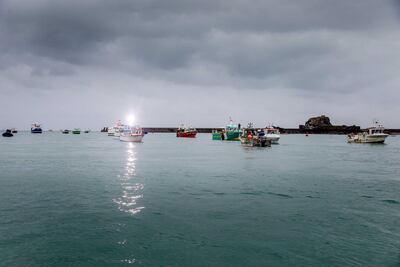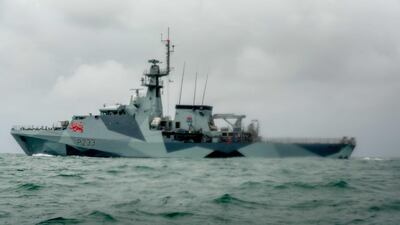When Vernon A Walters, a senior US diplomat under the Reagan administration, was asked in 1986 how the US should deal with the threat posed by Libya’s then dictator Muammar Qaddafi, he replied: “I’m a participant in the doctrine of constructive ambiguity.”
By leaving Washington’s position open to interpretation, American diplomats gave all involved room to explore the different paths to peace.
That principle would serve Walters well a few years later, when he was appointed US ambassador to Bonn during German Reunification.
The main sticking point in tearing down the Berlin Wall had been Russian fears that doing so would open the door for Nato to expand into Eastern Europe.
When Walters and his fellow diplomats suggested that this may not be the case, the Kremlin took it as a guarantee and the wall dividing Europe was allowed to fall.
Since Brexit negotiations began in 2017, British diplomats have tried to use constructive ambiguity not to reunite Europe, but to leave it peacefully.
In their agreements with Brussels, on matters from the Northern Irish border to the future of trade to fishing rights, London’s civil servants have sought to leave various clauses open to interpretation – to secure a “yes” from British voters, and a “oui” or “ja” from the Europeans.
Some issues – the border in Northern Ireland is once again up for discussion, dogged by renewed violence – are appearing to be intractable.
Navigating the sea of ambiguity this week is the UK Royal Navy's HMS Severn. With machineguns and room for 50 commandos, the ship can send an unambiguous statement whenever Downing Street needs.
But now it has been posted to send one off the coast of the British island of Jersey, 22 kilometres from France, over the relatively trivial matter of fishing licences.
French fisherman claim post-Brexit licences being issued to them by Jersey authorities impose requirements that were not outlined clearly in the UK-EU Trade and Co-operation Agreement signed at the end of last year. Dozens of French fishing boats blocked St Helier, Jersey’s port, on Thursday in protest.

French authorities agree that Jersey’s new measures were not adequately communicated.
Even as Jersey officials went down to the docks to meet the protesters, who they describe as peaceful, the presence of the HMS Severn to "monitor" the protest prompted France to send two of its own police boats, the Athos and the Themis.
The Elysee Palace, the office of France’s president, has said it is “monitoring” the situation too, and that it “hopes” things will remain calm.
A few dozen fishermen agitated by licensing practices is hardly the impetus for a new Anglo-French War.
But what ought to have been an isolated tussle has become inextricably – and inappropriately – linked to great power politics and the future of Europe, and an opportunity for London and Paris to display hollow bravado where a simple commitment to agree on the fine print of a trade deal would do.
The devil is in the detail, as so many exhausted Brexit negotiators have discovered. But far more formidable devils lie where the details are left out.


